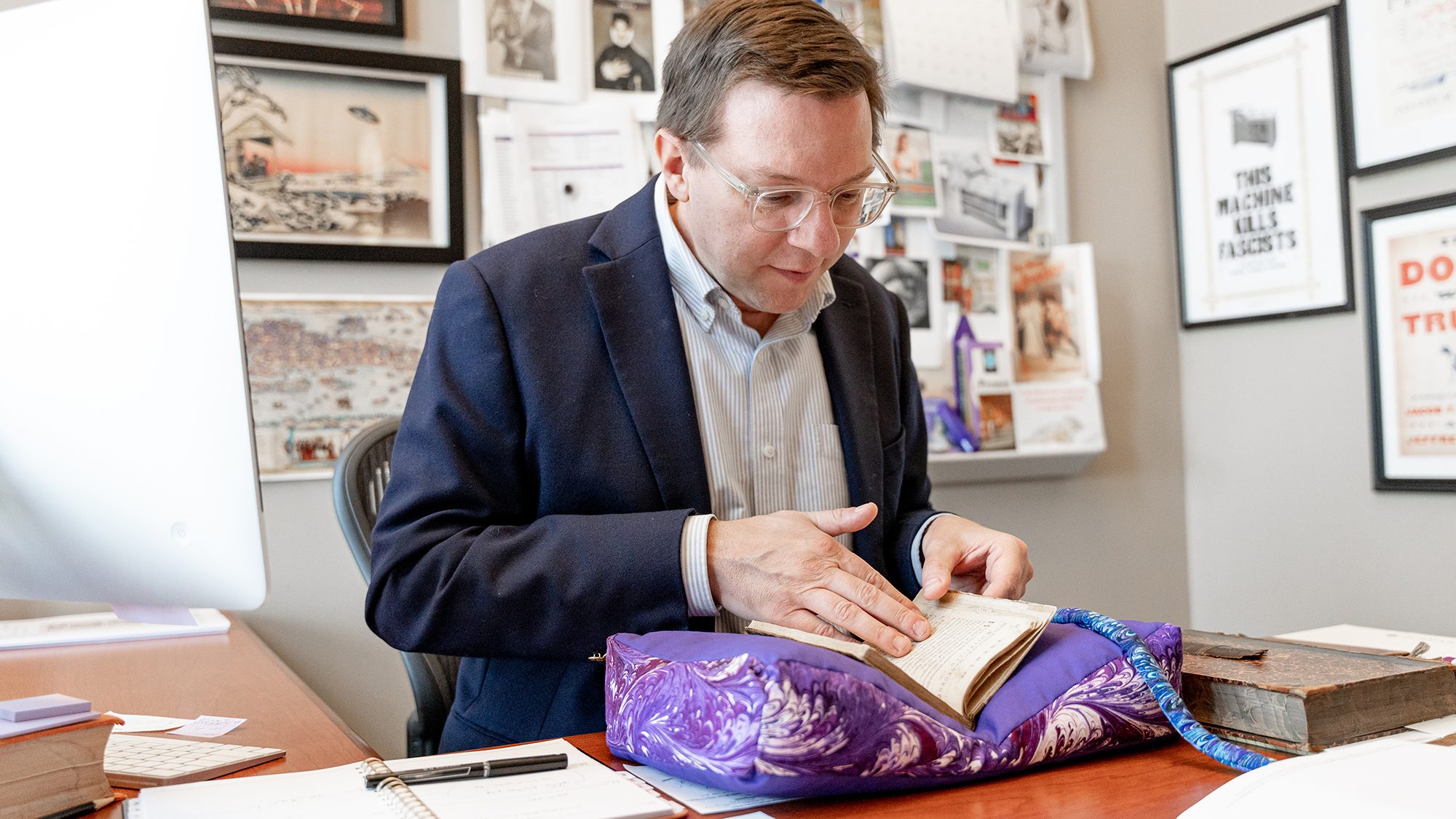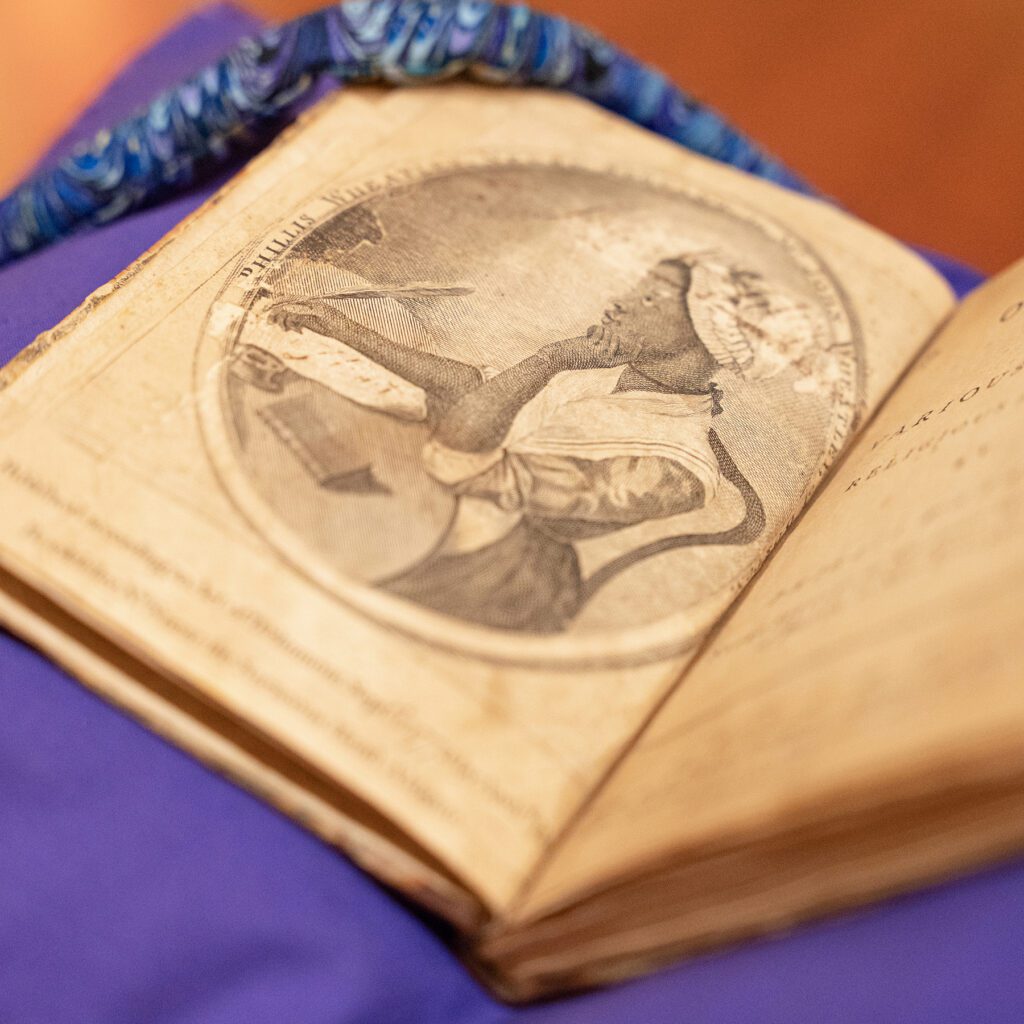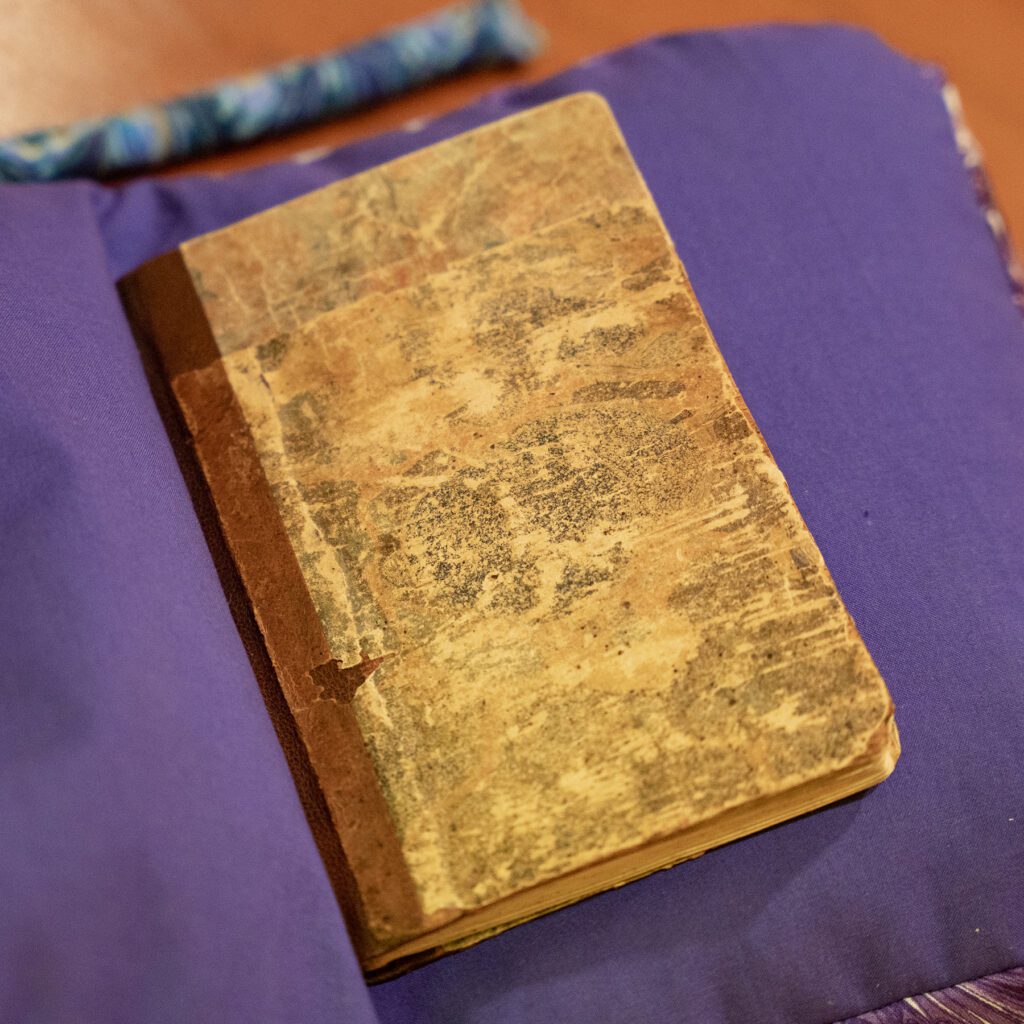Furman acquires ‘Poems,’ the ‘crowning jewel’ of teaching collection

The FedEx package didn’t appear remarkable from the outside, but its arrival was something special.
Furman recently acquired a first-edition copy of Phillis Wheatley’s “Poems.” The volume, published in 1773, made history as the first book by an African American, the first book by an African American woman and the first book of poetry by an African American author.
“My department is focusing much more now on African American culture and literature … and this is the crowning jewel in our collection,” said Jeff Makala, associate director for special collections and university archivist.
Makala is responsible for the library’s rare book collection. He’s in a permanent pattern of negotiating gifts and purchases to build Furman’s holdings, which span centuries and continents.
Afro-Americana is an important focus right now. “Reparative work,” he calls it. Wheatley’s book “fits totally with the scope and range of what we’re doing,” he said.
The acquisition came with a little joke on Makala.
In late spring, a poetry class visited the library and Makala showed them selections from the American poetry collection, including a 1773 copy of London’s “The Gentleman’s Magazine,” which included a reprint of a new poem by Phillis Wheatley, “Negro Servant to Mr. John Wheatley, of Boston, in New England.”
“This is probably the closest we’ll ever come to seeing that book they’re writing about in the magazine,” Makala had told the class.
“I should know better, I guess,” he said, laughing. “Lesson learned on that.”

A first-edition copy of Phillis Wheatley’s “Poems” recently acquired by Furman
Just weeks after showing the reprinted poem to that class, he was looking at catalogues for the upcoming New York International Antiquarian Book Fair. And there was Wheatley’s book, an ex-library copy, less desirable to private collectors and, also a bit less expensive.
“For our teaching collection, we don’t necessarily need the most perfect copy of every book,” Makala said.
This one includes annotations, underlining, a public library’s bookplate and a dealer’s ticket.
“It had this life outside of the original collector-owner,” Makala said.
The notes appear to have been made by an early owner with quill pens. Makala foresees an engaging independent study project cataloging the markings.
The book cost more than he would usually spend; its purchase required dipping into multiple funds and the Wells Family Endowment for Special Collections. But his boss green-lighted the purchase the same day Makala found the book.

The cover of “Poems”
“Poems” will be accessible to the public in the library’s special collections room. The rules are pretty simple: “Basically clean hands and a pure heart,” Makala said. “You’re able to see and handle all the books in our collection.”
It’s a key difference between a teaching collection and a museum collection. Once items such as bags, coats, pens and cups are secured in the vestibule, students are able to handle historic works. This is vital, to Makala’s mind.
Literature students have already been reading Wheatley’s poems, typically in a Norton Anthology, a “big brick of a book,” Makala said. “There’s an importance to encountering the material text, as it appeared to its original audience.”
“Poems” is small and comparatively short, at about 120 pages. It includes an engraving of Wheatley sitting with her left hand at her chin, her right holding a quill pen over a piece of paper – the first portrait of an African American author.
“The fact that something this significant has come to Furman is important,” Makala said. World-class, original materials amplify teaching and learning. Instead of being accessible through a trip to New York or Boston, or even Chapel Hill or Atlanta, “I want them here for our students, on site.”